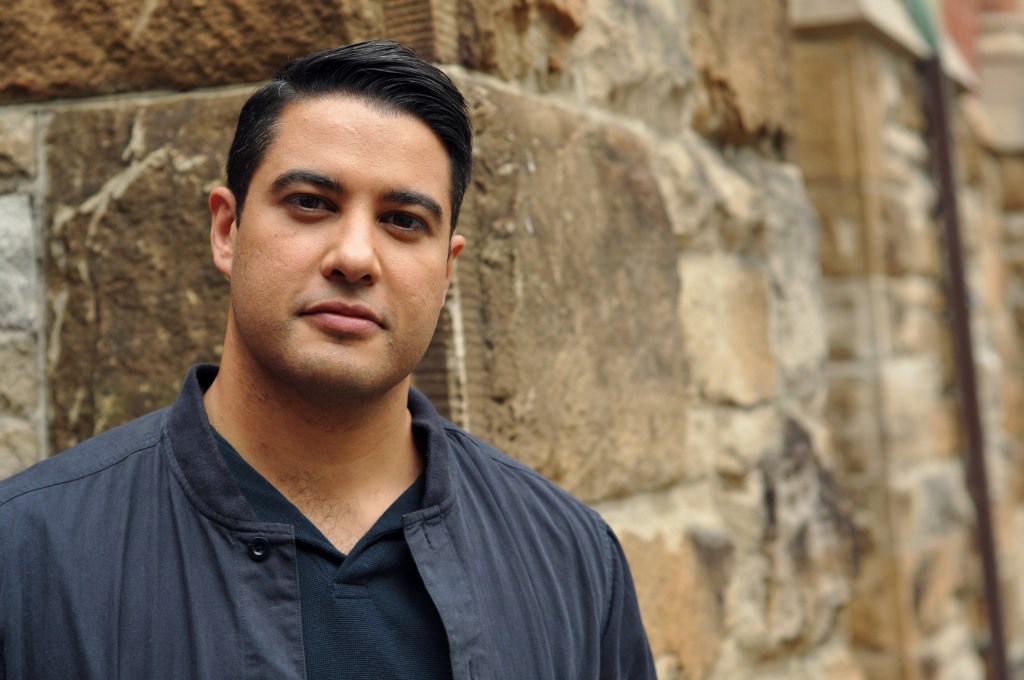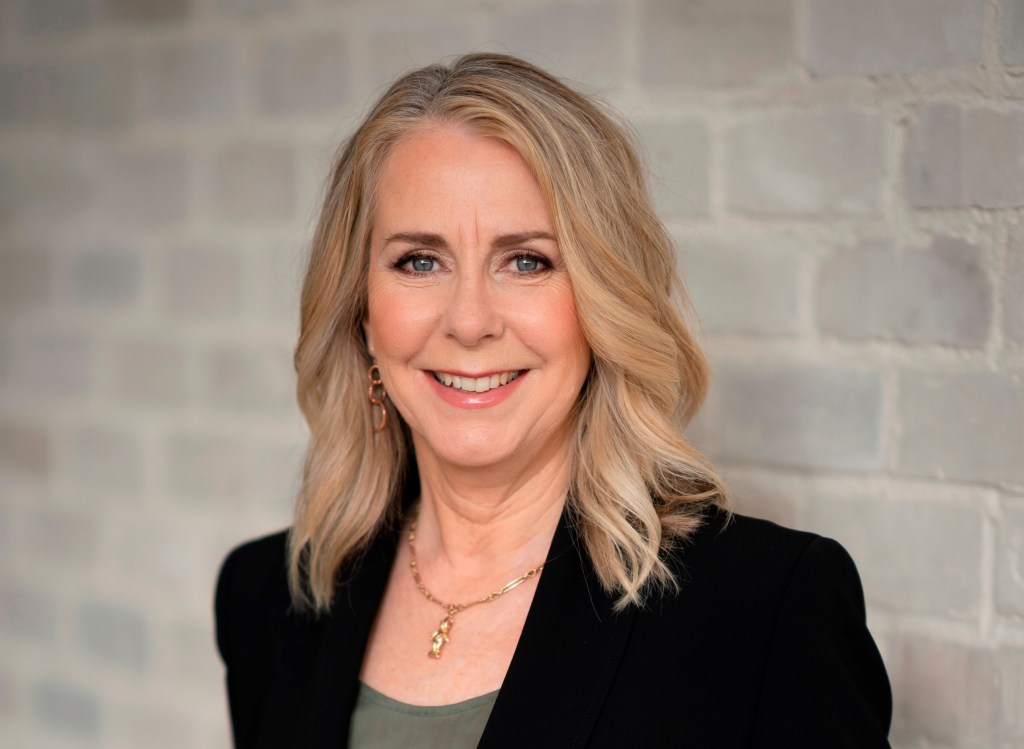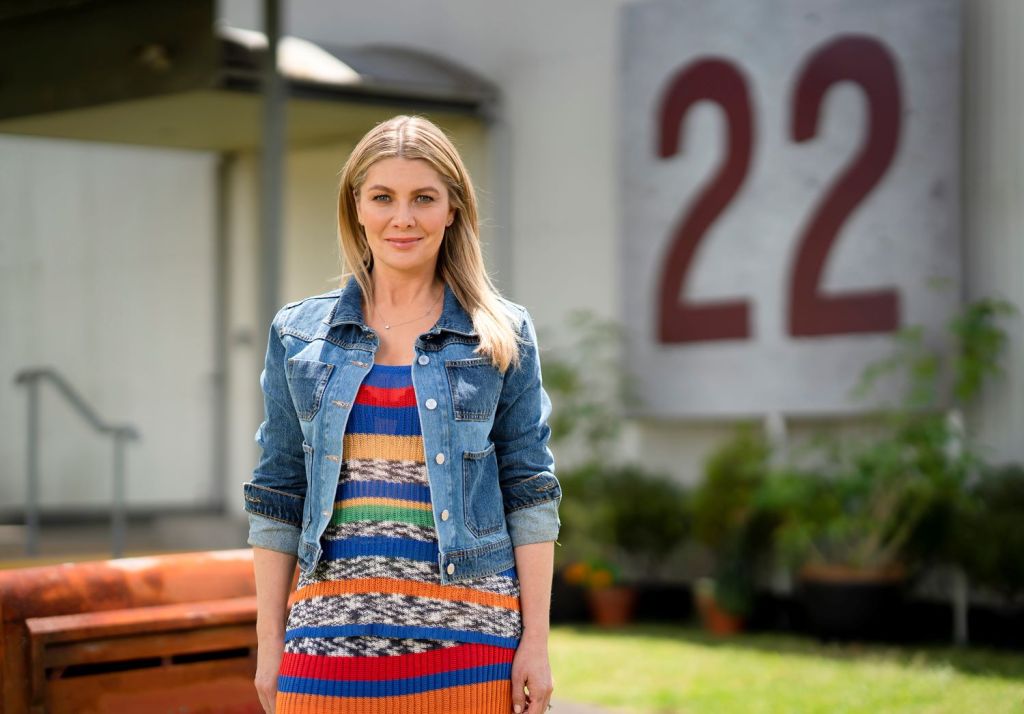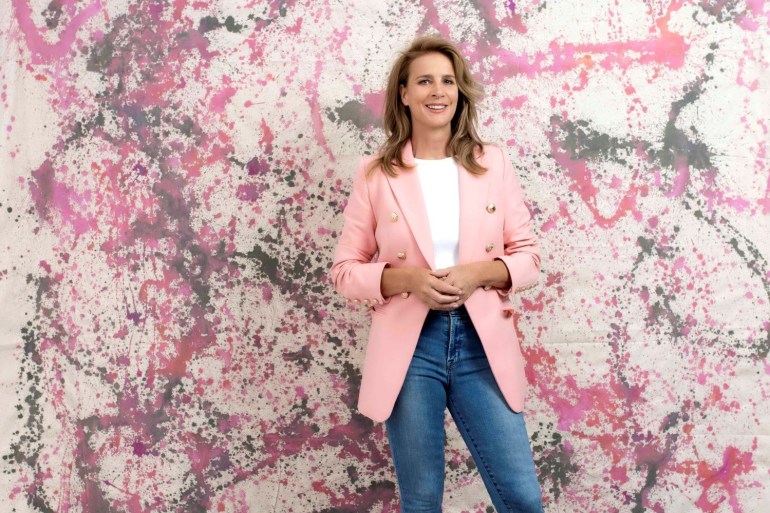The ABC has announced two presenter-led additions to its 2022 factual slate: Great Southern Landscapes, hosted by Rachel Griffiths, and Stuff The British Stole, which sees Marc Fennell build upon his ABC podcast of the same name.
Further, head of factual and culture Jennifer Collins tells IF the broadcaster is on the hunt for more specialist factual ideas across arts, science and natural history.
From Mint Pictures, Great Southern Landscapes extends upon the success of last year’s Finding the Archibald.
The 6 x 30 minute series, intended to air in primetime, sees Griffiths trade portraits for iconic landscapes, travelling around Australia to find the exact spot where most the country’s famous artists placed their easel. Along the way she meets people from all walks of life who will share the untold personal, social, and cultural stories behind the works.
Collins says the ABC is always looking for programs that can take the arts to a broad audience, which Griffiths and the Mint Pictures team already proved they could do with Finding the Archibald.
Great Southern Landscapes was the actor, producer and directors’ idea, bringing it to the ABC with Mint’s Dan Goldberg. She will executive produce with Adam Kay and Ariel White, while the series directors are White and Daniel King, and Goldberg series producer.
“It was a bit of a no brainer, really,” Collins says of the series order, with the show designed to be family-friendly and entertaining.
“It’s a returnable series; we know that Australia’s got a multitude of impressive artists… if it does well that we can continually bring [it] back year after year.
“Rachel is an authentic host. She’s got a genuine, passionate interest in the arts. She’s well connected, and she’s married to an artist. Her love of the arts is palpable.”
Another six-part series, Stuff The British Stole is a co-production with Canadian public broadcaster, CBC, produced by Wooden Horse, WildBear Entertainment and Cream Productions (Canada).
Both a history and a mystery series, it begins filming this month, exploring treasures acquired through the years of the British Empire and how they got to where they are now.

Collins describes Stuff the British Stole as an ambitious, blue-chip series, that has the rigour and the depth an ABC audience expects while also being entertaining.
“Mark Fennell is an extraordinary talent,” she says.
“It’s a really exciting format, and given the track record of the podcast, we’re thrilled he’s bringing it to screens for us.”
Richard Finlayson and Jude Troy executive produce for Wooden Horse, Alan Erson and Michael Tear for WildBear Entertainment and David Brady and Kate Harrison for Cream Productions. In addition to hosting, Fennell is co-producer and writer.
When Collins became head of factual and culture at the ABC in October 2020, she was brought on to lead a newly-structured department that saw all factual content makers united into a single unit across TV, radio and digital. This included Radio National, podcast creation hub Audio Studios and flagship programs such as Compass, and Catalyst.
Stuff The British Stole is exactly the kind of project that this new structure supports, uniting teams across radio, science and arts, Collins says.
“It’s a great evolution of content. I think that’s what the ABC does really well. When we can leverage our various arms of the ABC, we can really amplify content and have major impact.”
While international co-productions are increasingly commonplace in drama in order to unlock more streams of finance and therefore produce more ambitious, high budget work, they are less so in documentary and factual. That is partly as a documentary story cannot necessarily be engineered to fit across two territories.
However, like in drama, the benefits of co-production include a bigger budget and international scale. Stuff The British Stole has required a substantial research team to bring it to fruition, and each self-contained episode requires international travel. Principal production funding has come from Screen Australia, with additional support from the Canada Media Fund, Canadian Film or Video Production Tax Credit, Ontario Creates, and Content Mint.
The series comes after the ABC and CBC signed an agreement in 2019 to co-develop and co-produce drama, comedy, non-scripted and children’s programming.
“In [international co-production for] documentary, it’s about finding the right content that is going to work for global audiences and work in different territories,” Collins says.
“The beauty of ABC working with CBC is that we have the same imperatives. Our audiences look for the same depth of content and the sort of content that they’re commissioning is very similar to the sort of content that we’re commissioning locally.“
One of the other joys of Stuff The British Stole for Collins is that Fennell will host of the series in both territories.
“It’s very rare with international co-productions for an Australian presenter to also present the international version. Often the international partners will replace the voice or put in a local presenter that resonates more with their audience. The beauty of this series is that they’ve absolutely seen the appeal of Matt Fennell.”
Science is another area where international co-productions often make logical sense, particularly to for blue-chip, large-scale projects. Also on the ABC’s upcoming slate is Carbon: The Unauthorised Biography, from Genepool Productions and Canadian company Handful of Films.
Co-directed by Daniella Ortega and Niobe Thompson and narrated by Sarah Snook, it features scientists such as Neil deGrasse Tyson and Katharine Hayhoe.
“The visual effects on Carbon are just extraordinary. That’s what brings the science to life, and brings the science to a broader audience and helps with that understanding of the science,” Collins says.
“If it had been a lower budget and something we’d made just locally, it wouldn’t have been as ambitious.”

Collins is thrilled to be managing a hefty and diverse factual slate for 2022. Among the other projects she is excited by is Space 22, hosted by Natalie Bassingthwaighte and set to air in May.
From BBC Studios ANZ, it is an experimental program exploring the impact of art therapy on mental health, supported by the Black Dog Institute and featuring Eddie Perfect, Abdul Abdullah, and Wendy Sharpe.
“The results have been extraordinary,” Collins says.
“I feel like only the ABC would make a show like this. It’s a really fresh approach to mental wellbeing.”

Collins is also enthused about Northern Pictures’ Southern Ocean Live, with Ann Jones and Hamish Macdonald, the return of Miriam Margolyes to the ABC with Australia Unmasked, and new spins on existing formats, Old People’s Home for Teenagers and Back in Time for the Corner Shop, a twist on Back in Time For Dinner.
While the ABC gets a lot of pitches in contemporary factual, along the lines of Love on the Spectrum and Old People’s Home for 4-Year-Olds, Collins is keen to commission more specialist factual.
“The marketplace is crowded. There are a lot more players… and what ABC does very well is our specialist content. Joining with our digital teams, our science teams over in RN, our arts teams over in RN – we can really amplify that content.
“I’d love more arts ideas, whether that’s features, series, one hours or half hours. Likewise with science. Again, we would love to see more international co-productions with science, particularly with our public broadcaster partners… We’re very keen to get in early on in science development.”
Broadly, Collins believes it is a strong period of opportunity for Australian producers working in documentary. She is thrilled to see projects being recognised at an international level, such as Firestarter: The Story of Bangarra winning a Rose d’Or Award, and Old People’s Home for 4-Year-Olds an International Emmy.
“There’s real global recognition of Australian producers and Australian content, and I think it’s a really exciting time for our industry,” she says.
“Having said that, I’m not negating that it’s been very tough in terms of COVID the last couple of years. Businesses have really had to become very resilient and agile. But they are a resilient lot and they’ve pushed through, and they continue to deliver really impressive programming. I’m optimistic for the documentary community.”


